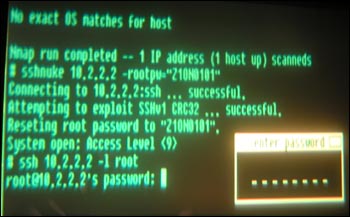Network Magazine's
May issue featured the article
Emerging Technology: Detection vs. Prevention - Evolution or Revolution?. This is another case where a policy enforcement mechanism is confused with a policy audit and verification system. Policy enforcement mechanisms include firewalls, routers with access control lists, and so-called "intrusion prevention systems," which are simply layer 7 firewalls. Policy audit and verification systems include some traditional intrusion detection products, along with traffic collection systems like
Argus and
Sandstorm's
NetIntercept. Is
Marty Roesch the only high-profile person who understands this? From the article:
"Gartner sees IPS as the next generation of IDS, when they're likely the next generation of firewall," says Marty Roesch, founder of Sourcefire, an IDS vendor. Roesch is also the creator of Snort, an open-source, rules-based language for writing detection signatures.
Roesch insists that IDSs and IPSs are separate technologies with mutually exclusive functions. "IPS is access control, and IDS is network monitoring. IPS is policy enforcement, and IDS is audit. It's not the IDS's job to secure your network. Its job is to tell you how insecure it is."
But Roesch's distinction may not resonate in the wider security market. "Joe Average doesn't want to monitor traffic and comb through data and make changes in rules and policies based on detected attacks," says Jeff Wilson, executive director of Infonetics Research (www.infonetics.com). "They want to stop attacks."
-- end article --
Fine -- prevention is always preferable to detection. But prevention always fails, at some point. How do you determine the scope of a compromise when your IPS fails to detect and prevent an attack? You better be able to fail back on your audit capabilities, which log what they see and make no value judgements.














